Polyphagia in dogs
Polyphagia In Dogs. Dogs with an insatiable appetite may also exhibit polydipsia and polyuria. Meals can be perfectly adequate but the pet or person remains hungry actively looking for and eating if possible just about anything and everything. Read more in dogs is relatively straightforward and includes replacing pancreatic enzymes with exogenous enzymes and dietary modification. If your dog seems to be continuously hungry and his behavior dictates that he requires food in excess of the norm further investigation is warranted.
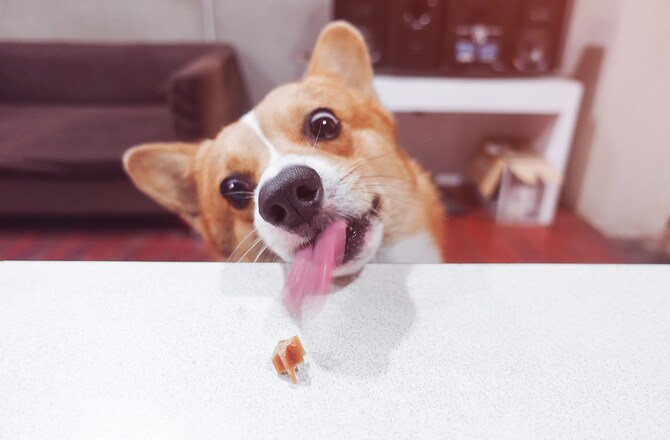 Increased Appetite In Dogs Petmd From petmd.com
Increased Appetite In Dogs Petmd From petmd.com
Dogs with an insatiable appetite may also exhibit polydipsia and polyuria. Similarly although some dogs with pica and polyphagia have compulsive disorders many dogs especially puppies begin to chew and ingest nonfood items as part of investigative and exploratory behavior. 8 Owners may also describe dogs as slowing down and having less energy. It is important to differentiate polyphagia caused by a diseased state from that caused by psychological reasons. In general older dogs take more medications than younger ones so the likelihood of this happening is higher. Increased appetite or polyphagia can be brought on by various circumstances.
Psychological polyphagia is often the result of learned behaviors and overfeeding causing weight gain and obesity.
While most cases of polyphagia have an underlying physical cause its possible that a behavioral or psychological problem is the culprit behind the constant. 8 Owners may also describe dogs as slowing down and having less energy. Polyphagia goes beyond normal canine greed and often occurs in older animals. Dogs with polyphagia are generally described as having a ravenous appetite. Any alteration in your pets eating behavior should be checked by the veterinarian. Pollakiuria increased frequency of urination is generally caused by disorders of the lower urinary tract that compromise the normal function or filling capacity of the bladder.
 Source: veteriankey.com
Source: veteriankey.com
While most cases of polyphagia have an underlying physical cause its possible that a behavioral or psychological problem is the culprit behind the constant. If your dog seems to be continuously hungry and his behavior dictates that he requires food in excess of the norm further investigation is warranted. Both reflect disturbances in normal appetite control. Psychological polyphagia is often the result of learned behaviors and overfeeding causing weight gain and obesity. The most common clinical signs are polyphagia weight loss and a large volume of loose.
 Source: petmd.com
Source: petmd.com
While most cases of polyphagia have an underlying physical cause its possible that a behavioral or psychological problem is the culprit behind the constant. Dogs with an insatiable appetite may also exhibit polydipsia and polyuria. In general older dogs take more medications than younger ones so the likelihood of this happening is higher. Common reasons polyphagia occurs in older dogs are. Read more in dogs is relatively straightforward and includes replacing pancreatic enzymes with exogenous enzymes and dietary modification.
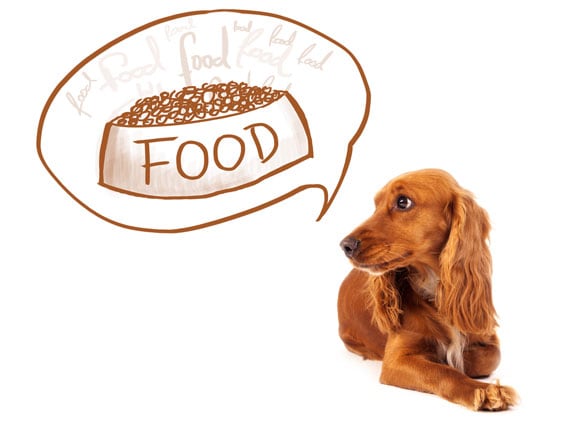 Source: petmd.com
Source: petmd.com
The appropriate starting dose for glucagon is 5-10 ngkgminute. Feeding a low-fiber diet that contains moderate levels of fat or highly digestible fat very digestible carbohydrate and high-quality protein is. Excessive eating or swallowing. Hyperphagia is a common feature of mice that have a genetic mutation in the neuroendocrine system that signals hunger and satiety 35. Polyphagia usually appears alongside other symptoms such as obesity weight gain or weight loss polydipsia increased water intake polyuria increased urination and the inability to properly absorb nutrients.
Source:
Causes of Increased Appetite in Dogs. The appropriate starting dose for glucagon is 5-10 ngkgminute. Psychological polyphagia is often the result of learned behaviors and overfeeding causing weight gain and obesity. This chapter discusses relevant history especially weight change physical examination and diagnostic tests and provides a diagnostic algorithm and information on differential diagnoses for polyphagia. Increased appetite or polyphagia can be brought on by various circumstances.
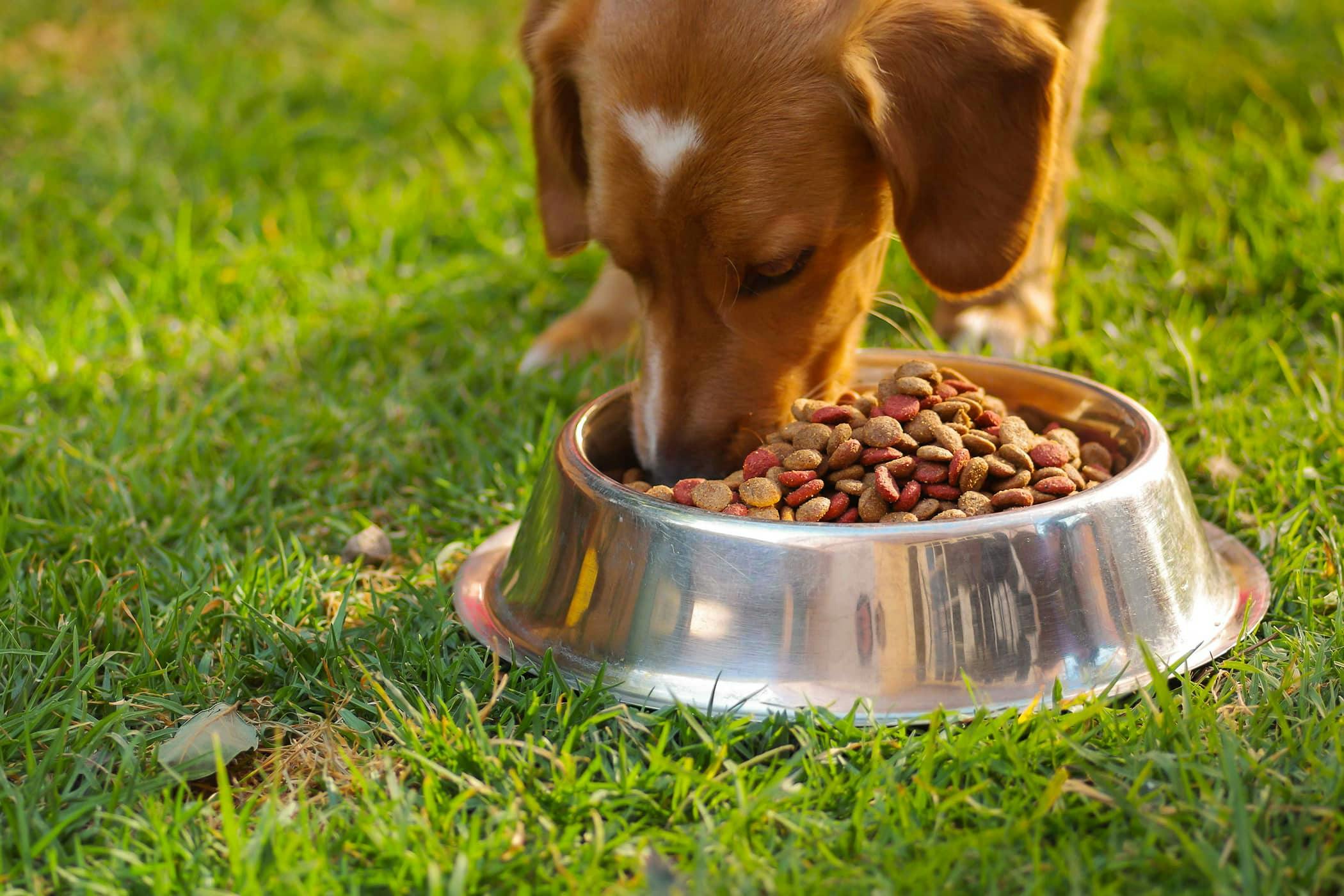 Source: wagwalking.com
Source: wagwalking.com
The most common clinical signs in dogs with hyperadrenocorticism include polyuria polydipsia polyphagia weight gain pot-bellied appearance and alopecia. The Laboratory Mouse Second Edition 2012. Meals can be perfectly adequate but the pet or person remains hungry actively looking for and eating if possible just about anything and everything. Dogs with an insatiable appetite may also exhibit polydipsia and polyuria. Polyphagia in dogs is the medical term used for an excessive appetite or overeating.
 Source: barkibu.com
Source: barkibu.com
Any alteration in your pets eating behavior should be checked by the veterinarian. If your dog seems to be continuously hungry and his behavior dictates that he requires food in excess of the norm further investigation is warranted. Dogs with an insatiable appetite may also exhibit polydipsia and polyuria. In general older dogs take more medications than younger ones so the likelihood of this happening is higher. Polyphagia is excessive eating or appetite.
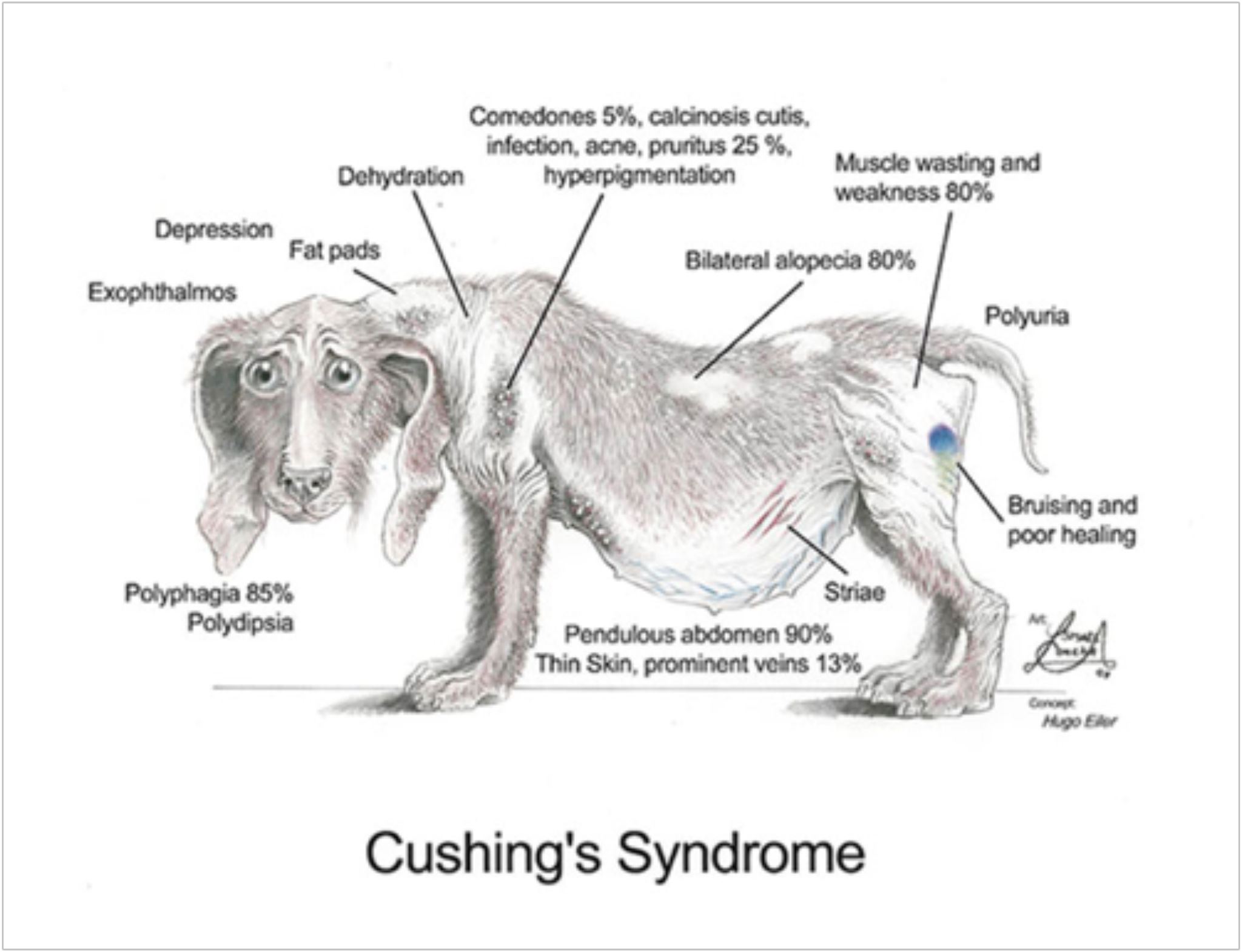 Source: newenglandvetservices.com.au
Source: newenglandvetservices.com.au
Both reflect disturbances in normal appetite control. Just as with humans many medications both prescription and over-the-counter can cause an increase in appetite for dogs. The appropriate starting dose for glucagon is 5-10 ngkgminute. It is important to differentiate polyphagia caused by a diseased state from that caused by psychological reasons. Polyphagia may be considered pathologic ie secondary to disease whereas hyperphagia may be physiologic.
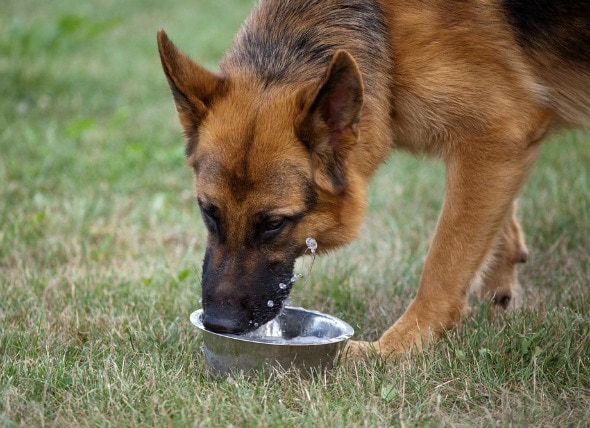 Source: petmd.com
Source: petmd.com
The term polydipsia refers to excessive thirst manifested by excessive water intake which in turn usually leads to polyuria which is the formation and excretion of a large volume of urine. A dog with polyphagia has an abnormal and ravenous appetite. The most common clinical signs in dogs with hyperadrenocorticism include polyuria polydipsia polyphagia weight gain pot-bellied appearance and alopecia. In addition as part of exploratory behavior many dogs are attracted to and may ingest feces compost and prey dead or live. Polyphagia is excessive eating or appetite.
 Source: merckvetmanual.com
Source: merckvetmanual.com
Polyphagia can best be described as constant hunger. Common reasons polyphagia occurs in older dogs are. The most common clinical signs in dogs with hyperadrenocorticism include polyuria polydipsia polyphagia weight gain pot-bellied appearance and alopecia. Increased appetite is known as polyphagia in veterinary terms. Polyuria and polydipsia are commonly abbreviated and referred to as PUPD.
 Source: petcoach.co
Source: petcoach.co
The most common clinical signs in dogs with hyperadrenocorticism include polyuria polydipsia polyphagia weight gain pot-bellied appearance and alopecia. Polyphagia can best be described as constant hunger. Hyperphagia is a common feature of mice that have a genetic mutation in the neuroendocrine system that signals hunger and satiety 35. Polyphagia usually appears alongside other symptoms such as obesity weight gain or weight loss polydipsia increased water intake polyuria increased urination and the inability to properly absorb nutrients. The Laboratory Mouse Second Edition 2012.
 Source: canna-pet.com
Source: canna-pet.com
Differentiation and identification of the underlying cause is critical to proper treatment controlling food intake and managing body weight. Polyuria and polydipsia are commonly abbreviated and referred to as PUPD. Read more in dogs is relatively straightforward and includes replacing pancreatic enzymes with exogenous enzymes and dietary modification. Dogs with polyphagia are generally described as having a ravenous appetite. If your dog seems to be continuously hungry and his behavior dictates that he requires food in excess of the norm further investigation is warranted.
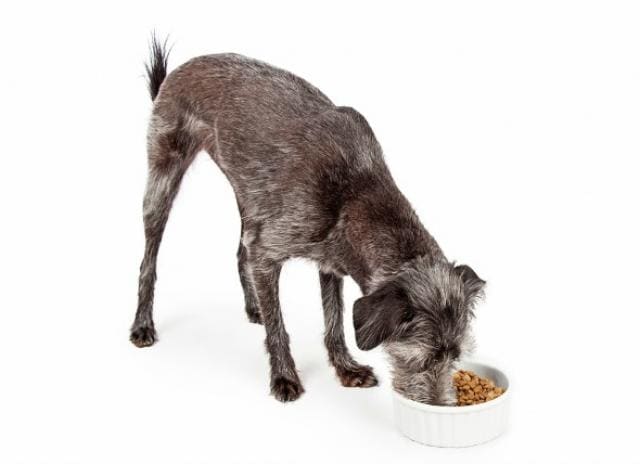 Source: petmd.com
Source: petmd.com
Common reasons polyphagia occurs in older dogs are. Eight of the 10 dogs were without clinical signs up to 29 months after the treatment was terminated. This chapter discusses relevant history especially weight change physical examination and diagnostic tests and provides a diagnostic algorithm and information on differential diagnoses for polyphagia. This is another trick diabetes plays on all those who suffer from it. In general older dogs take more medications than younger ones so the likelihood of this happening is higher.
If you find this site adventageous, please support us by sharing this posts to your own social media accounts like Facebook, Instagram and so on or you can also save this blog page with the title polyphagia in dogs by using Ctrl + D for devices a laptop with a Windows operating system or Command + D for laptops with an Apple operating system. If you use a smartphone, you can also use the drawer menu of the browser you are using. Whether it’s a Windows, Mac, iOS or Android operating system, you will still be able to bookmark this website.




